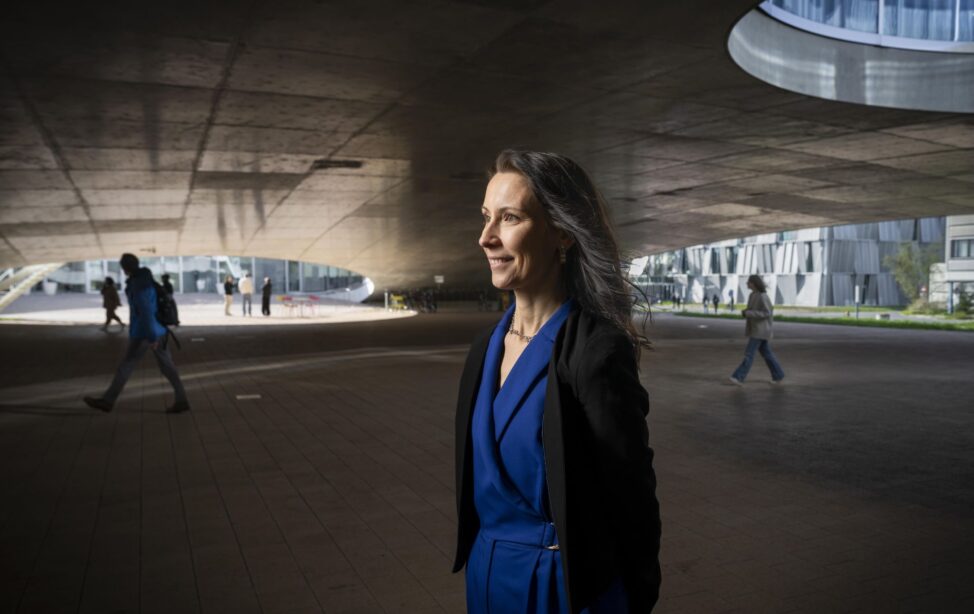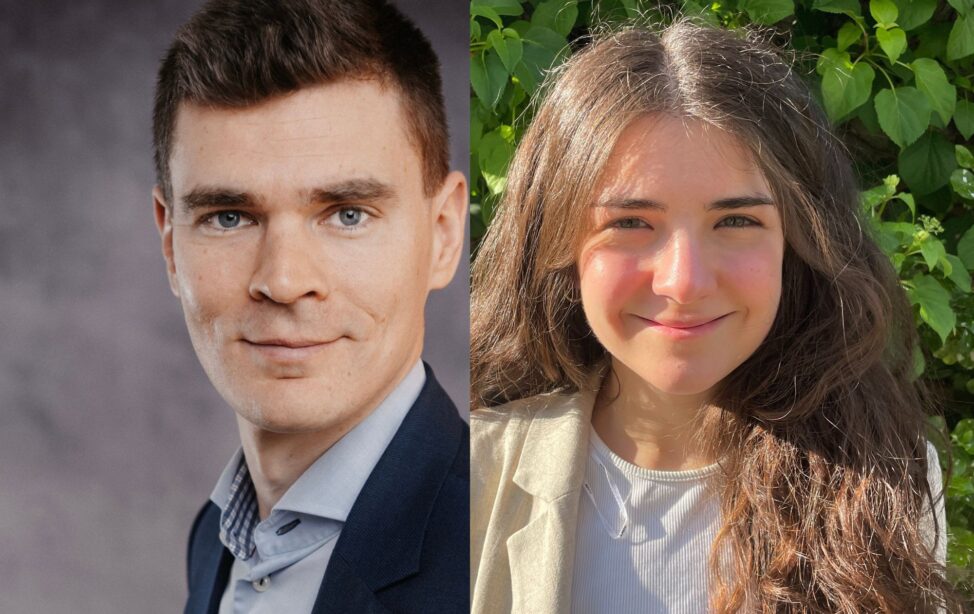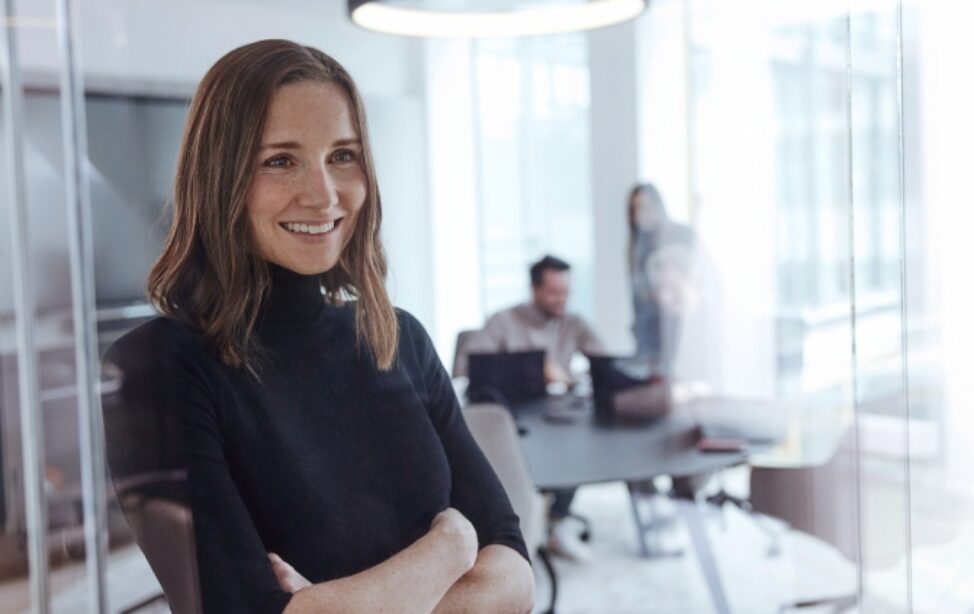
President Thomas F. Hofmann visited the founders of Celonis at the company's Munich headquarters on Theresienstrasse (Photo: Magdalena Jooß/TUM).
Thomas F. Hofmann: Yes, frustration tolerance is a very important quality for successful talents in science and entrepreneurship. The easy paths have usually already been worn out by others; true pioneers, on the other hand, venture into unmapped territory with all its ups and downs. Success and innovation happen when we are willing to give new ideas a chance and keep experimenting with alternative approaches, even if many of them may not work right away. In addition to technical expertise and creativity, true inventors, explorers and innovators therefore need a healthy dose of frustration tolerance, and instead of being afraid to fail, they are able to learn from their mistakes.
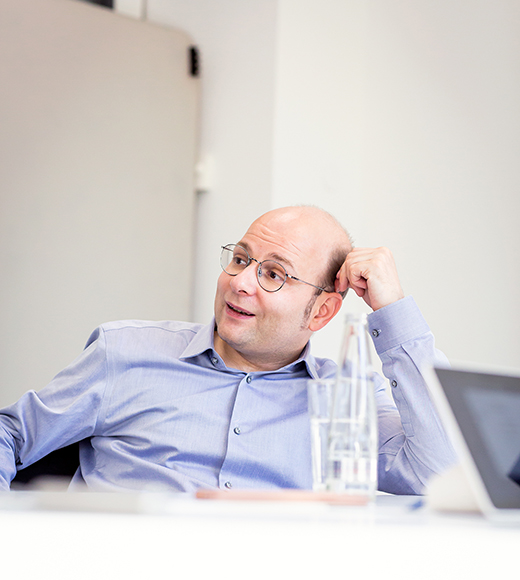
Bastian Nominacher (Image: Magdalena Jooß/TUM).
Thomas F. Hofmann: I can only second that. Really good ideas and high-potential approaches rarely fall from the sky. Increasingly, they materialize at the interfaces of disciplines through the interplay of differing knowledge, tools and working methods, especially when the “chemistry” between the team members is right.
Bastian Nominacher: The network plays a big role. It was good that we had many mentors at TUM with whom we could exchange ideas when we experienced setbacks or when we were facing new challenges.
Thomas F. Hofmann: The foundation here is to promote top-level science, because outstanding research constantly spawns new approaches for ingenious founders. Then we have to powerfully support the young talents throughout the entire start-up process all the way up to the growth phase, which we do very systematically and with great passion together with UnternehmerTUM, our affiliated Center for Business Creation and Innovation. With our spin-offs, we promote the transfer of technologies or services from our laboratories, think tanks and workshops into commercially or socially relevant applications.
Bastian Nominacher: Due to TUM’s start-up support, we have a very strong ecosystem here in Munich. You can learn from other founders and exchange ideas. You don’t have to make every mistake that someone else has already made. And at university, we learn how to tackle a problem.
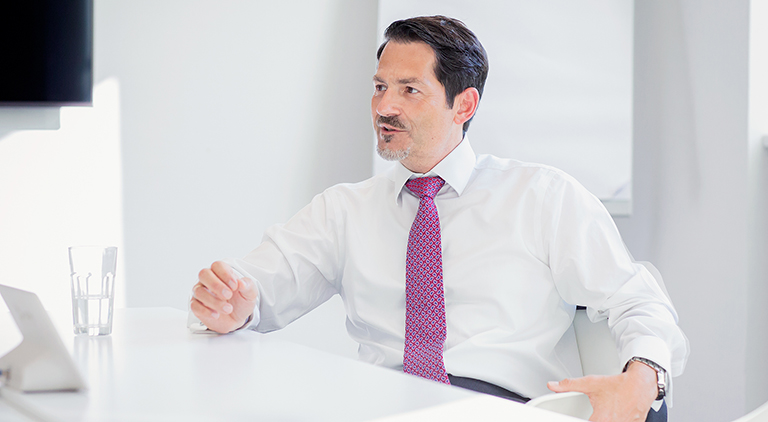
President Thomas F. Hofmann (Image: Magdalena Jooß/TUM).
Thomas F. Hofmann: Methodological competencies are at the heart of the training. These are a constant that you can fall back on throughout your entire life. Detailed technical knowledge changes, becomes obsolete and is permanently updated – in times of technological leap innovations within just a few years. However, anyone who has learned to think analytically and to work methodically can apply this effectively for a lifetime. This applies to a top scientist just as much as to a board member or an entrepreneur.
Success and innovation happen when we make room for the new.
Bastian Nominacher: I like exchanging ideas with other entrepreneurs or with my network. Just last weekend, we were thinking about how to break into a new market and were a little stuck. We talked to someone on our advisory board and came away with a new perspective. In the end, I thought to myself: You could have thought of that yourself (laughs).
President Thomas F. Hofmann has known Celonis since its early beginnings as a founding idea of three young students (Photo: Magdalena Jooß/TUM).
Thomas F. Hofmann: Many young entrepreneurs think about selling their company too early. Have you ever thought about selling your shares in the company?
Bastian Nominacher: No. We have no plans of selling. Personally, I am driven by the fact that here at Celonis we have the opportunity to create one of the largest and most important technology companies in the world. It’s exciting, we enjoy it, and that’s why we’re still passionate about it.
Thomas F. Hofmann: That’s a great attitude and should be a model for others. This is exactly the kind of attitude that Germany as a business location needs, because this is how companies are created that are, of course, globally active, but create new jobs here in Germany and maintain the county’s export strength.
Bastian Nominacher: It is said that approximately one in 100,000 start-ups becomes a unicorn. That also means that the other 99,999 will not. People often ask us why we are so successful. I think the reason is our passion for the cause. Just aiming for a lucrative sale is probably not a good reason to start a company.
Thomas F. Hofmann: If you have developed a groundbreaking technology, the greatest motivation for you surely has to be to see the company grow and prosper. By the way, this also applies to my work as president: I do everything I can to make TUM even more successful. Success can’t always be measured in just numbers, publications, patents or start-ups. It is equally important to me that the university is not an isolated ivory tower of excellence, but becomes an integral partner of society, moves with the times and acts as a catalyst for responsible, trustworthy and socially viable innovations. Only then can we prevent science from becoming disconnected from the needs and values of our society. That’s what motivates me in my role as president. If that were not the case, I would probably not do it at all.
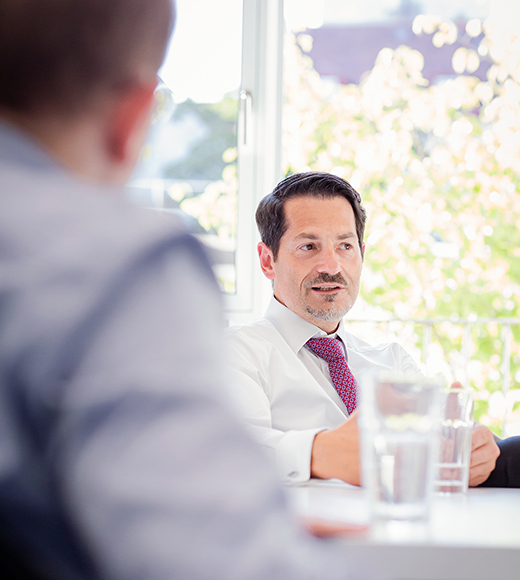
President Thomas F. Hofmann (Image: Magdalena Jooß/TUM).
